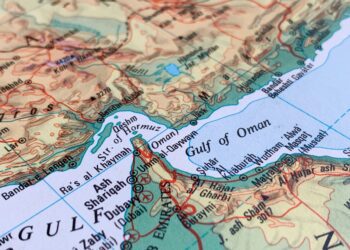People working from home have more options than ever.
In addition to the list of countries that launched initiatives to welcome remote workers last year, new destinations have implemented programs to tempt workers to ditch their home offices for a place in the sun.
In all cases, employment outside of the country is a must, as if proof of sufficient funds to support a long-term stay, medical insurance, and negative Covid tests, of course. Add in application fees and a few other perfunctory requirements and you’re ready to go.
Here are 5 examples:
Montserrat
Launched on Jan. 29, the Montserrat Remote Workers Stamp lets travelers live and work on the tiny Caribbean island for up to 12 months.
Remote workers (including freelancers and consultants) must have medical insurance and an annual income of at least $70,000. Fees are $500 for individuals — or $750 or higher for families — to apply.
Applicants will know within a week if they have been approved.
Remote workers must test negative for Covid-19 and quarantine for 14 days at an accommodation of their choice. Only 20 Covid cases have been confirmed on the island to date.
The Bahamas
Anew 12-month residency permit, known as BEATS for short, lets remote workers and students live and move between 16 different islands in the Bahamas, including Andros, the Exumas, Eleuthera and Paradise Island.
Applications are processed within five days and cost $25 per person. Workers must provide proof of employment, while students need to show evidence of school enrollment and funds to cover living and travel expenses.
Travelers need a negative Covid-19 test result (taken no more than five days prior to arriving) to apply for a Bahamas Travel Health Visa, which is an additional requirement. Starting Nov. 1 this year, visitors no longer need to quarantine upon arrival.
Dubai
All nationalities can apply for Dubai’s new remote working program,provided they make $5,000 per month.
At $287 to apply, fees are lower than in most other countries. Applicants must have health insurance that is valid in the United Arab Emirates and show proof of income in the form of payslips and bank statements.
Workers can hire nannies and drivers, rent cars and enroll their children into Dubai’s school system.
Travelers to Dubai must arrive with a negative PCR (polymerase chain reaction) test taken no more than 72 hours prior to departing. Additional tests may be required upon landing.
Mauritius
Remote workers seeking a “Covid-safe” place to ride out the pandemic can consider Mauritius, according to local tourism officials on the island nation located southeast of Africa.
The country of nearly 1.3 million people has recorded just 610 Covid cases to date.
Digital nomads and retirees willing to follow its “rigorous” health measures can apply for a “Premium Visa” to stay for one year, according to the country’s official tourism website. To enter, travelers must quarantine for two weeks and pass four Covid-19 tests.
Croatia
Croatia started welcoming digital nomads in January.
“At this moment, it is only possible to apply at the local police station in Croatia,” de Jong told CNBC in February. “We expect that by March … we can start accepting online applications.”
Remote workers who require a separate visa to enter Croatia can apply for the program at the nearest Croatian embassy or consulate or via email.












